Cloud-Native Geo Pioneers in Earth Science: Honoring the 2024 Leading Women
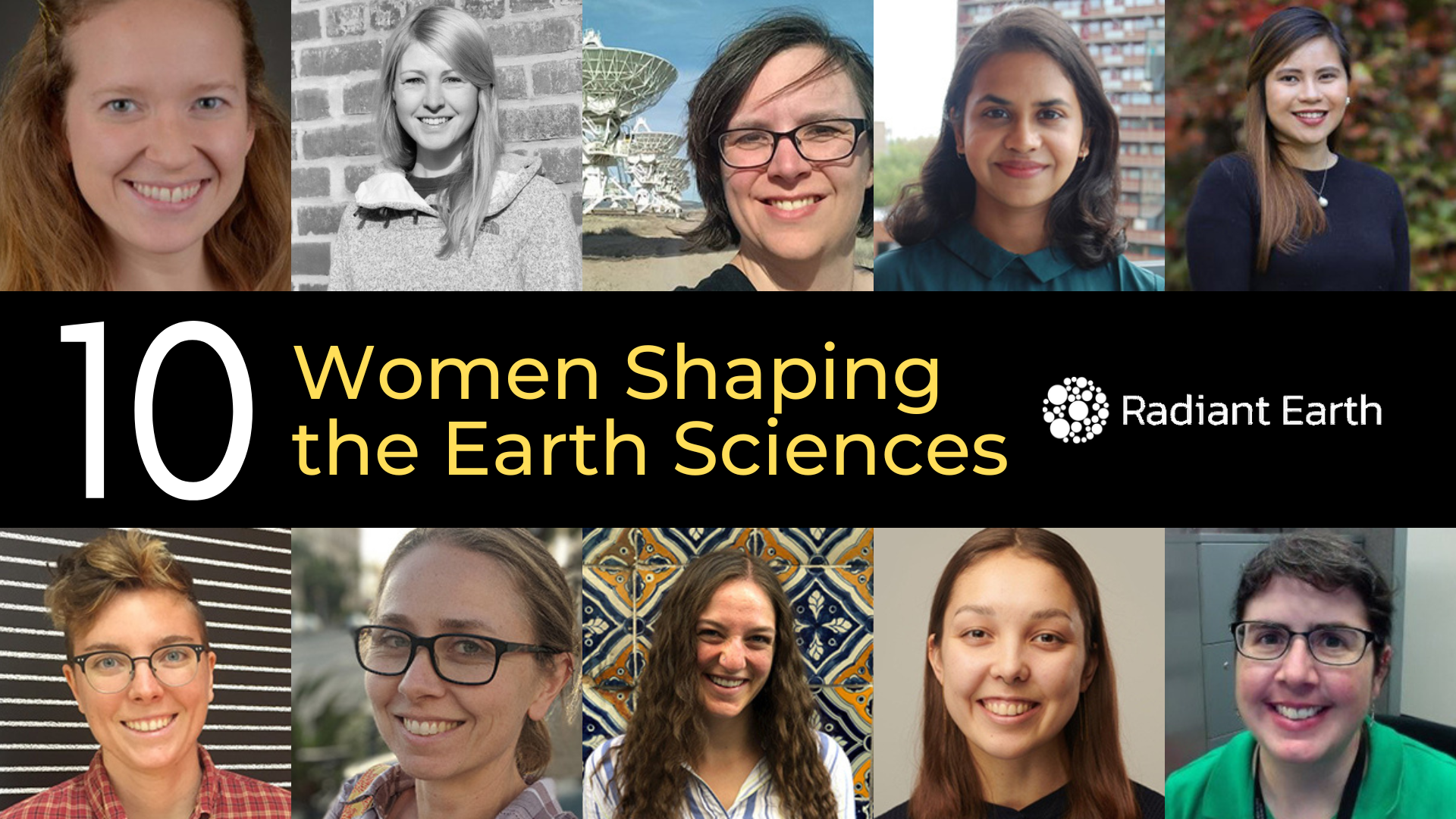
Meet the women shaping the future of Earth Science.
Building on the legacy of past awardees (see the 2023, 2022, and 2021 cohorts), this year’s cohort exemplifies leadership in leveraging cloud-native geospatial technologies, an advancement as cloud computing reshapes Earth science.
Join us as we celebrate the 2024 Leading Women in Earth Science! Share your congratulations and engage in discussions about the potential of cloud-native technologies.
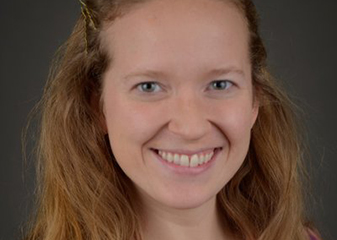
Paige Martin
Paige Martin is a scientist specializing in climate data science and physical oceanography. She is an advocate for open science to foster transparent research practices. Paige almost single-handedly introduced over 200 West African ocean and climate scientists to cloud-native science, facilitating access to large computing power through JupyterHubs as part of the Coastal Ocean Environment Summer School in Nigeria and Ghana. She has used this program as a pilot case for the potential benefit of cloud computing in under-resourced parts of the world, and each year continues to reach out to funders in an effort to provide long-term access to cloud-based scientific infrastructure in West Africa.
Paige has played an important role as an early adopter of cloud-native science while an early career researcher at Columbia University. She worked directly with many in the Pangeo community. As a Pangeo Steering Council member, Paige leads community events and promotes cloud-native science internationally. She integrates cloud computing into the Coastal Ocean Environment Summer School, empowering participants with coding skills and access to large datasets. Paige’s impact extends to OceanHackweek, where she mentored and co-organized events, inspiring others to pursue cloud-based science. Her mentorship has inspired individuals to pursue careers in cloud-based science, with one mentee even becoming a developer of Pangeo Forge. Paige’s dedication to open science and global scientific empowerment solidifies her as a leader in her field. You can follow her work and stay updated on her latest projects through her website.
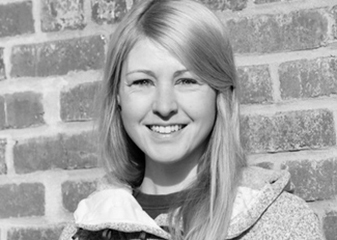
Aimee Barciauskas
Nominated for the second year in a row, Aimee Barciauskas is a Data Engineer at Development Seed with a passion for using technology for social good. She’s a leader in developing cloud-optimized geospatial formats that make massive Earth data more accessible and usable. Her work on the Cumulus project for the National Aeronautics and Space Administration (NASA) exemplifies this, where she’s building APIs and improving cloud infrastructure to unlock the potential of NASA’s EO data. Aimee’s expertise spans cloud-native technologies, data science, and fostering cross-disciplinary collaboration to unearth valuable insights from geospatial data. This collaborative approach extends her volunteer work as a chapter leader of DataKind DC, where she tackles social issues through data science projects. Her contributions range from building a program referral portal for DC’s Child Family Services Agency to using natural language processing to understand donor motivations. Aimee is also part of the Pangeo project and served as the Earth Systems Information Partners (ESIP) Cloud Computing Cluster for several years. She has been nominated to be NOAA’s Data Archive and Access Requirements Working Group (DAARWG) Co-Chair. Get to know her more in this blog post, and follow Aimee on GitHub and Twitter to stay updated on her latest projects.
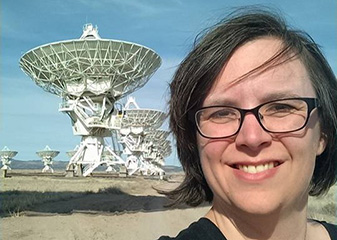
Kaylin Bugbee
Kaylin Bugbee is an applications data manager for NASA at Marshall Space Flight Center. Her research focuses on Earth science informatics with an emphasis on making NASA’s data systems sustainable, resilient, and maintainable while also enabling open science through reinforcing transparency, reproducibility, and open access.
Dedicated to ensuring the availability and longevity of NASA’s science data, Kaylin works to generate, repair, improve, and document these datasets for future scientists and decision-makers. She also contributes to the Inter-Agency Implementation and Advanced Concepts team at NASA, supporting the Earth Science Data Systems Program to expand open science through innovation and partnerships.
Kaylin’s approach to her work has earned her recognition as a leader in cloud-native geospatial technologies within Earth sciences. She serves as the metadata standards expert for NASA’s Earth Science Data Systems Program and represents NASA at key standards bodies like the Open Geospatial Consortium, and plays a key role role in shaping policies and standards that enhance the usability and interoperability of geospatial data.
Kaylin is also dedicated to mentoring the next generation of scientists and technologists, especially in promoting diversity and inclusion within the field, amplifying the long-term impact of her work. Follow Kaylin on LinkedIn to stay updated on her latest research.
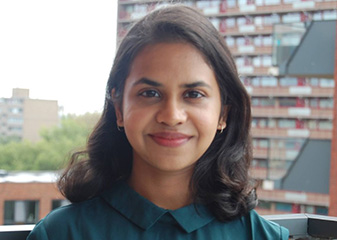
Pavithra Raghunathan
Pavithra Raghunathan is a data scientist, leading the Earth Observation (EO) team and solutions at CGI Nederland. She specializes in analyzing remote sensing data acquired from optical and radar satellite images. With a background in developing workflows for hotspot detection and monitoring pipelines at scale using EO data, she has made significant contributions to CGI’s web platform, enabling advanced analytics and insights.
Pavithra develops EO solutions for clients across the Netherlands, impacting various sectors. Her solutions have improved greenhouse monitoring, leading to better environmental management practices. Additionally, utility companies have benefited from her work, as it has helped optimize inspection work for gas pipelines, enhancing safety and efficiency in infrastructure management. Follow Pavithra on LinkedIn.
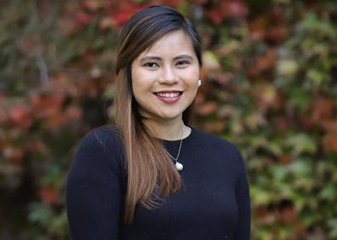
Stephanie Tumampos
Stephanie Tumampos is a doctoral candidate and research associate at the Technical University of Munich. Her research focuses on leveraging remote sensing data for deep learning and environmental applications, and data fusion techniques. Her current work involves modeling, prediction, and anomaly detection of Earth surface dynamics, forming the basis of her ongoing PhD studies in collaboration with Imperial College London.
Stephanie is a science communication enthusiast. In 2018, she received the Outstanding S&T Journalist Award as a science journalist and photographer in the Philippines. She currently serves as the Chair of Publicity and PR for the IEEE Geoscience and Remote Sensing Society in the 2023-2024 term. Alongside this role, she takes on the responsibilities of being the social media lead for the Inspire, Develop, Empower, and Advance program. Her journey with GRSS began as the host of the society’s podcast, Down to Earth: A Podcast for Geoscientists by Geoscientist, which IDEA spearheaded. She actively contributes to the Ad Hoc Diversity, Equity, Inclusion, Accessibility, Belonging Committee, emphasizing her commitment to fostering a diverse and inclusive environment within the society.
Stephanie’s multifaceted contributions to research, science communication, and leadership exemplify her dedication to advancing Earth science and fostering a supportive and inclusive community within the field. Follow her on Google Scholar LinkedIn to learn more about Stephanie’s research.
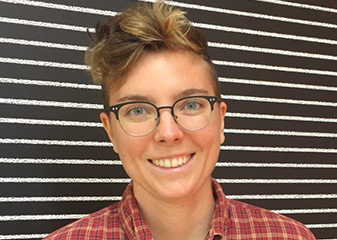
Julia Signell
Julia Signell is a Senior Software Engineer at Element 84 working on web applications and improving open-source best practices in geospatial science. With a background in the scientific Python ecosystem as an environmental researcher, an open-source contributor, and a web developer, she has contributed to open-source projects like XArray, HoloViz, Dask, and the STAC ecosystem. This, coupled with her expertise in cloud-native geo tools, demonstrates her commitment to advancing the field of cloud-native geospatial technologies.
Julia actively advocates for open science through workshops and presentations, including those focused on cloud-based scientific data processing. Her involvement with NASA projects highlights her commitment to improving data discovery and analysis.
A leader in the geospatial data science community, Julia spearheads projects that address emerging needs in the field, like the creation of xpystac. She proactively identifies gaps and drives solutions forward.
Julia is currently actively supporting NASA projects to enhance data discovery and analysis capabilities. You can keep track of her work via LinkedIn and Github.
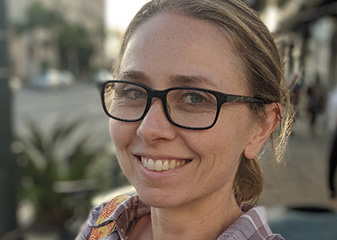
Julia Stewart Lowndes
Dr. Julia Stewart Lowndes is a marine ecologist working at the intersection of actionable environmental science, data science, and open science. A core Openscapes team member and founding director, she is also a Mozilla Fellow and Senior Fellow at the National Center for Ecological Analysis and Synthesis at the University of California Santa Barbara, having earned her Ph.D. from Stanford University in 2012 studying drivers and impacts of Humboldt squid in a changing climate.
Julia dedicated herself to ocean health research, serving as the science program lead for the Ocean Health Index (OHI) from 2013 to 2019. During her tenure, she championed the OHI’s transition to open data science, a methodology detailed in the article “Our path to better science in less time using open data science tools”. This approach not only fostered reproducibility and collaboration within the team, but also bolstered communication with the global scientific community through the design and maintenance of the OHI’s science website. Since 2012, Julia has contributed significantly to OHI Global Assessments, ensuring they are updated annually with the latest data and scientific advancements.
Julia attributes her growth as an open science contributor to the inclusive and welcoming open communities she has been a part of. As a co-founder of RLadies Santa Barbara and Eco-Data-Science, she has played a key role in fostering inclusive environments for learning and collaboration. Julia’s contributions as a rOpenSci R package contributor, Posit/RStudio collaborator, Carpentries instructor, and Mozilla fellow highlight her dedication to advancing open science principles and empowering others within the community. Her leadership in these initiatives reflects her commitment to creating spaces where individuals from diverse backgrounds can come together to learn, collaborate, and contribute to open science initiatives. To learn more about Julia’s projects, visit her Github page.
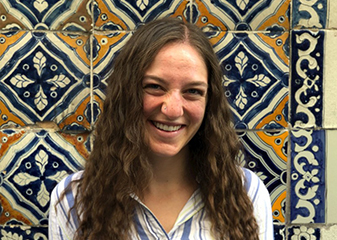
Michelle Roby
Michelle Roby, a Developer Advocate at Radiant Earth, leverages her passion for community building, education, and communication to empower the geospatial community. Through her role, she provides valuable resources, fosters collaboration, and promotes innovative technologies. With a background in Environmental Studies and Spanish Language & Literature, along with technical expertise (GIS, remote sensing, R, C++, and Python), Michelle brings a unique blend of environmental awareness and tech to drive innovation in the Earth sciences.
Transitioning from software engineer, Michelle thrives in her role, fostering meaningful connections and facilitating dialogue within the cloud-native geospatial community. She leads initiatives like the Cloud-Native Geospatial Google Group community calls and coordinates the STAC Project Steering Committee, ensuring stakeholder needs are met and driving positive change. Michelle develops valuable resources, fosters collaboration, and promotes innovative technologies to make Earth data more accessible and ready for analysis. You can keep track of her work via LinkedIn and Github.
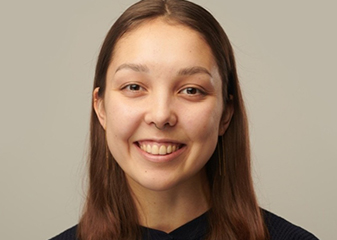
Katya Potapov
Katya Potapov leverages her diverse skillset for social good to empower vulnerable communities facing climate change. Holding a Bachelor’s degree in Computer Science from the University of Waterloo, with a specialization in human-computer interaction and a minor in cognitive science, Katya brings both technical expertise and a deep understanding of user needs to her work as a Software Engineer at Floodbase. Before joining Floodbase, she honed her skills through various engineering internships, gaining experience in backend infrastructure, cloud security, and even game development. This versatile foundation allows her to tackle challenges creatively and efficiently.
Driven by a mission to bridge the gap between flood-vulnerable communities and the information they need, Katya champions the development of sustainable and effective tools. She has helped build a data platform that helps users understand flood risks, respond to disasters, and financial adaptation and recovery. By aligning her efforts with the UN’s Sustainable Development Goals, Katya strives to ensure marginalized populations, often overlooked by technological advancements, benefit from her work, one line of code at a time.
To stay updated on her latest research and work, visit Julia’s website and follow her on LinkedIn.
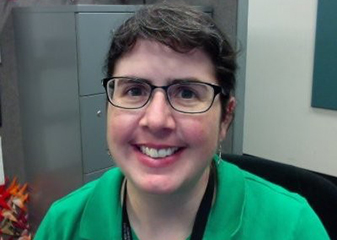
Christine Smit
Dr. Christine Smit, a Software Engineer at NASA’s Goddard Earth Sciences (GES) Data and Information Services Center (DISC), works to simplify access to remote sensing data through her work on Giovanni. Christine is currently focused on migrating Giovanni to the cloud using Amazon Web Services. Her work at GES DISC on Giovanni-4, a web-based tool providing access to NASA Earth science data, showcases her expertise in backend web development and her commitment to facilitating impactful research.
Christine’s dedication extends beyond her professional role; she actively contributes to the global climate data landscape, ensuring everyone, from policymakers to students, can easily access vital information. In addition, she serves as the secretary of the Goddard Music and Drama program, where she participates in productions. With a bachelor’s degree in vocal performance and a Ph.D. in electrical engineering from Columbia University, Christine embodies a lifelong learner, continually seeking to expand her knowledge and contribute positively to both the scientific and artistic communities. Follow her on LinkedIn to keep track of her projects.